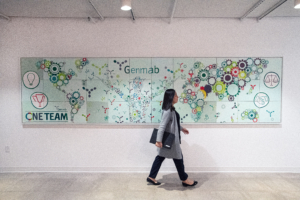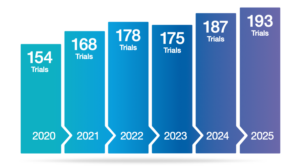
Roche providing improved anti-Her2 bispecific antibody
Researchers at at VHIO in Barcelona, Spain, and Roche in Schlieren have presented a bi-specific antibody that prevents the side effects of HER2-targeting compounds.
Dose escalation trails dating back to 2006 have provided severe toxicity for Trion Pharma’s/Fresenius’ bispecific anti-HER2 x anti-CD3 antibody ertumaxomab. Cardiotoxicity and other side effects have been also reported for other antibodies targeting HER2 due to the fact that the receptor protein is not exclusively expressed on tumour cells but also expressed at physiologic levels in normal epithelia. A team of Spanish researchers together with antibody engineers at Roche pRED in Schlieren now report that targeting a highly oncogenic domain of HER2, which is present in 40% of the HER2-positive patients, prevents those side effects paving the way to redirecting T cells to tumours expressing the new target.
Irene Rius Ruiz and colleagues zeroed in on the p95HER2 fragment of HER2, which most recently was filed for patent. They found that p95HER2 was not present in samples from 36 normal human tissues, indicating that the fragment is only expressed in cancer cells. The authors then designed a two-pronged T-cell-bispecific engager that binds to both p95HER2 and the CD3 receptor present on the surface of T cells and found that it impaired tumour growth in several mouse models of HER2-positive breast cancer while sparing the cells that contained the complete version of HER2 protein.
Glenmark has currently started Phase I dose escalation of GBR 1302, its bispecific anti-HER2 x anti-CD3 antibody. Academic groups have restarted clinical testing of Trion’s anti-HER2 x anti-CD3 bispecific antibody ertumaxomab.


 Genmab - Photo Credit: Andrei Jackamets
Genmab - Photo Credit: Andrei Jackamets
